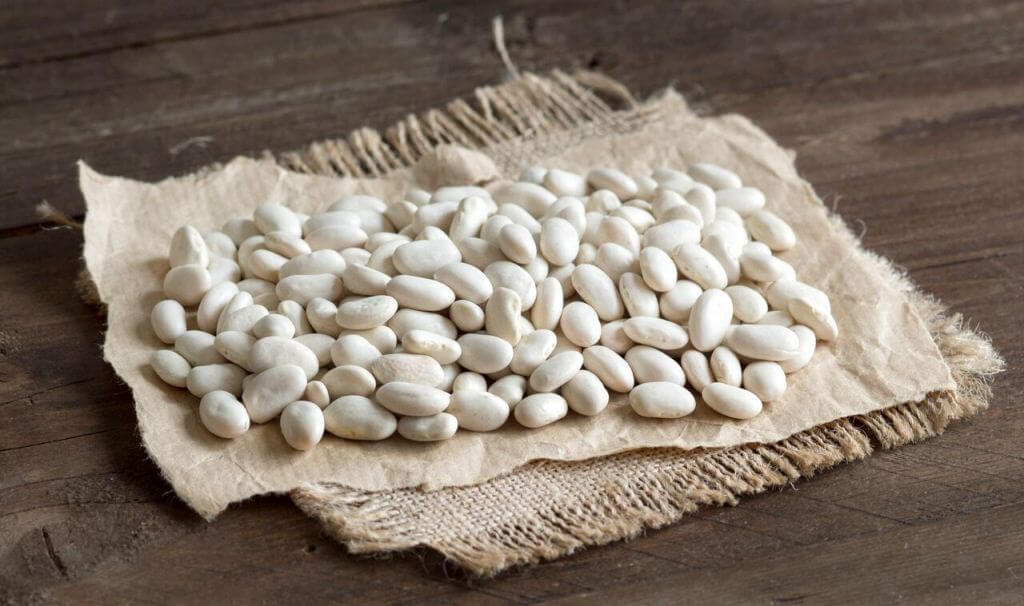Certainly! Here’s a comprehensive guide on white beans, including their nutrition, benefits, and more:
White beans, also known as navy beans or cannellini beans, are a type of legume that is widely consumed around the world. They are prized for their creamy texture, mild flavor, and numerous health benefits. In this comprehensive guide, we will explore the nutrition profile of white beans, their health benefits, how to incorporate them into your diet, and more.
Nutrition Profile of White Beans:
White beans are a nutritional powerhouse, packed with essential nutrients that contribute to overall health and well-being. Here’s a breakdown of their key nutritional components:
- Protein: White beans are an excellent source of plant-based protein. A one-cup serving of cooked white beans provides approximately 15 grams of protein, making them a valuable protein source for vegetarians and vegans.
- Fiber: White beans are rich in dietary fiber, which is important for digestive health and helps promote feelings of fullness. A one-cup serving of cooked white beans contains around 15 grams of fiber, aiding in digestion and supporting a healthy gut.
- Complex Carbohydrates: White beans are a good source of complex carbohydrates, which provide sustained energy and help regulate blood sugar levels. They are considered a low glycemic index food, making them suitable for individuals with diabetes or those aiming to maintain stable blood sugar levels.
- Minerals: White beans are packed with essential minerals such as iron, magnesium, potassium, and folate. These minerals play a crucial role in various bodily functions, including energy production, nerve function, and the formation of red blood cells.
- Antioxidants: White beans contain antioxidants such as flavonoids and polyphenols, which help protect against cellular damage caused by harmful free radicals. These antioxidants have anti-inflammatory properties and may help reduce the risk of chronic diseases like heart disease and certain types of cancer.
Health Benefits of White Beans:
- Heart Health: The high fiber content in white beans helps lower cholesterol levels and reduce the risk of heart disease. Additionally, white beans are low in saturated fat and rich in potassium, which supports healthy blood pressure levels and cardiovascular function.
- Weight Management: The combination of protein and fiber in white beans makes them an excellent food for weight management. These nutrients promote feelings of fullness and help control appetite, making it easier to maintain a healthy weight.
- Blood Sugar Control: The complex carbohydrates in white beans are digested slowly, leading to a gradual release of glucose into the bloodstream. This helps regulate blood sugar levels and can be beneficial for individuals with diabetes or those at risk of developing the condition.
- Bone Health: White beans are a good source of minerals like calcium, magnesium, and phosphorus, all of which contribute to bone health and strength. Regular consumption of white beans may help prevent conditions such as osteoporosis.
- Digestive Health: The high fiber content in white beans supports digestive health by promoting regular bowel movements, preventing constipation, and providing nourishment for beneficial gut bacteria.
Incorporating White Beans Into Your Diet:
White beans are a versatile ingredient that can be used in a variety of dishes. Here are some tips for incorporating white beans into your diet:
- Soups and Stews: Add white beans to your favorite soups and stews for added texture, flavor, and nutritional value. They pair well with vegetables, herbs, and spices, enhancing the overall taste of the dish.
- Salads: Toss cooked white beans into salads for a protein and fiber boost. They can add a creamy texture and make salads more filling.
- Dips and Spreads: Puree white beans with garlic, lemon juice, and olive oil to create a delicious and nutritious dip. You can also use white bean spread as a healthy alternative to traditional spreads like mayonnaise.
- Side Dishes: Serve white beans as a side dish by sautéing them with herbs, garlic, and olive oil. They make a satisfying and nutritious addition to any meal.
- Baked Goods: Incorporate pureed white beans into baked goods like brownies or cookies to add moisture, fiber, and nutrients. This is a great way to boost the nutritional value of your favorite treats.
Precautions and Considerations:
- While white beans offer numerous health benefits, it’s important to note that they contain antinutrients, such as phytic acid and lectins, which can interfere with nutrient absorption and cause digestive discomfort in some individuals. Soaking and cooking white beans properly can help reduce the levels of these antinutrients and make them easier to digest.
- Additionally, individuals with certain medical conditions, such as kidney stones or gout, may need to limit their intake of white beans due to their purine content. It’s advisable to consult with a healthcare professional or registered dietitian if you have any specific concerns or dietary restrictions.
- In conclusion, white beans are a nutritious and versatile legume that offers an array of health benefits. With their high protein and fiber content, along with essential minerals and antioxidants, white beans contribute to heart health, weight management, blood sugar control, and digestive well-being. By incorporating white beans into your diet through various delicious recipes, you can enjoy their nutritional benefits and enhance your overall health.
Latest posts by Monika Wasserman (see all)
- The Comprehensive Guide to the Benefits of Liquorice Supplements - July 12, 2023
- White Beans: Nutrition, Benefits, and More - July 7, 2023
- Top 5 Reasons to Use A CBD Bath Bomb - June 7, 2023

